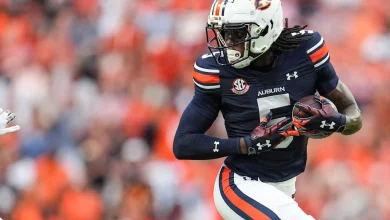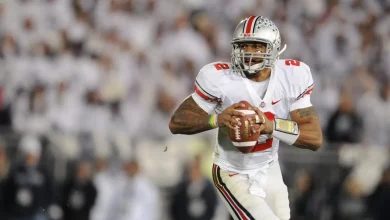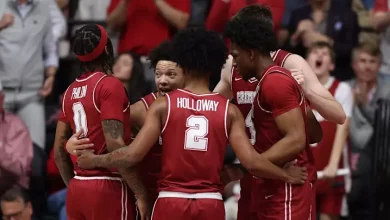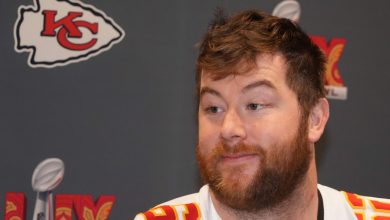In a recent podcast with Dwyane Wade , Rondo shares the experience that got him playing some exposure during their championship run.
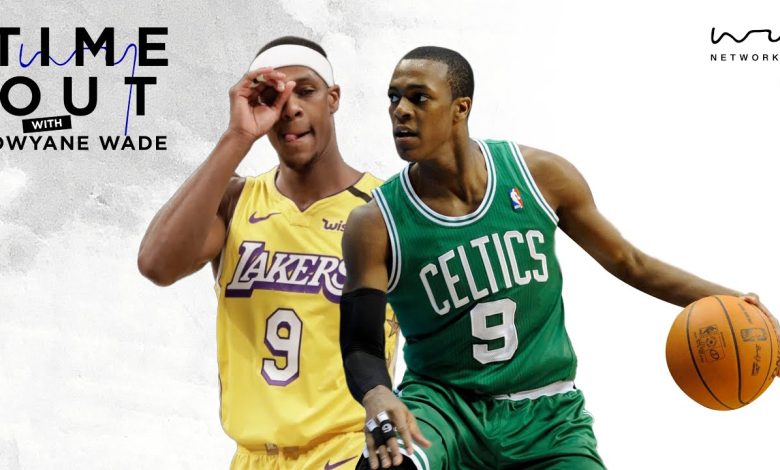
In a recent episode of The Why Not Us podcast hosted by NBA legend Dwyane Wade, veteran point guard Rajon Rondo offered an authentic, behind-the-scenes look at one of the defining moments of his storied career. Known for his basketball IQ, tenacity, and playoff intensity, Rondo shared the story of how a specific experience during the championship run gave him the exposure—and ultimately the trust—to become a key contributor in a title-winning squad.
For fans and teammates alike, Rondo’s impact was obvious in the box scores and his floor generalship. But according to Rondo, the journey to that moment wasn’t as smooth or certain as it might have looked from the outside.
A Champion’s Journey Begins
Rondo, who owns two NBA championship rings—one with the Boston Celtics in 2008 and another with the Los Angeles Lakers in 2020—has had a career that spans eras. From sharing the floor with Kevin Garnett and Ray Allen to later assisting LeBron James and Anthony Davis, Rondo’s evolution from young floor general to seasoned veteran has been both remarkable and deliberate.
During the podcast, Wade asked a simple but pointed question: “What moment made you feel like, ‘This is it—I belong, and I’m going to leave my mark on this championship?’”
Rondo smiled, leaned forward, and answered.
“There was a practice, man. I’ll never forget it. We were down a couple of guys, and coach was rotating lineups more freely than usual. And I ended up running with the first unit for an extended stretch. That 45-minute run changed everything.”
The Practice That Sparked It All
Rondo explained how, in the midst of a tight schedule during the season’s second half, the coaching staff experimented with different rotations in practice due to injuries and load management. With the usual starting point guard sitting out and several starters nursing minor issues, Rondo was inserted into a unit that featured LeBron James, Anthony Davis, Kentavious Caldwell-Pope, and Dwight Howard.
“That group just clicked. It wasn’t anything flashy—it was how I was moving the ball, organizing guys, reading their spots. Bron didn’t have to do everything. And I think the staff saw that and said, ‘Okay, there’s something here.’”
It wasn’t just Rondo’s passes or control—it was the confidence with which he dictated the pace, adjusted the tempo, and called out sets like he was the team’s primary quarterback. Teammates fed off it. Practices turned into competitive battles. And Rondo, now well into his 30s, felt the spark of purpose return.
Earning Trust from the Stars
What followed was a quiet shift.
In meetings, LeBron James began deferring to Rondo more during film sessions. Davis listened when Rondo pointed out rebounding angles. Even the coaching staff began crafting second-unit plays around Rondo’s decision-making.
“When Bron told me one day, ‘Yo, you see the game different, man. Just run it how you see it,’ I knew I had the green light—not to score, but to control. That’s a different kind of trust.”
Rondo’s impact wasn’t always immediate in the box score. But his fingerprints were all over the game. From pushing the pace in transition to slowing things down during late possessions, Rondo gave the Lakers a level of composure that was desperately needed—especially as the playoffs approached.
“Playoff Rondo” Awakens
By the time the Lakers entered the NBA Bubble in Orlando in 2020, Rondo had fully earned the nickname “Playoff Rondo” once again. Though he missed the seeding games due to a hand injury, he returned just in time to bolster the team’s postseason rotation.
And when he stepped back onto the court in the playoffs, everything clicked.
“That exposure, man. That chance I got in practice—it wasn’t a game, it wasn’t a media moment. It was just basketball. Real ones know, that’s where you make your mark.”
Rondo provided a jolt of energy and leadership that helped the Lakers eliminate the Houston Rockets, Denver Nuggets, and Miami Heat en route to the championship. His clutch threes, decisive passing, and pesky defense added layers the team hadn’t consistently shown before.
Dwyane Wade, who faced Rondo in many playoff wars during their respective primes, nodded in agreement.
“I remember saying to myself, ‘Oh, here we go—it’s that Rondo again.’ You just knew it was different.”
The Mental Game
What makes Rondo unique—and what he and Wade touched on repeatedly—is the way he sees the game. More than physical tools, it’s Rondo’s mind that gives him an edge.
He told Wade about a pregame routine that involved memorizing referees’ tendencies, opponents’ inbound plays, and even opposing coaches’ late-game habits.
“I wanted to know more than you. That was my goal every night. I didn’t care if you were quicker or a better scorer—I was gonna know what you were about to do before you did.”
This cerebral approach didn’t just help him as a player—it also elevated teammates. Young guards like Alex Caruso and Talen Horton-Tucker learned how to read defenses and anticipate rotations just by watching Rondo.
“He coached while he played,” Wade noted. “That’s rare.”
The Respect of a Champion
By the time the Lakers lifted the Larry O’Brien trophy in 2020, Rondo had earned a second ring—this time on a team where he wasn’t the star, but absolutely vital.
LeBron James, who had clashed with Rondo in the past during their playoff battles, praised him publicly:
“There’s nobody in this league like Rondo. He’s a basketball savant. When he’s locked in, he changes games—simple as that.”
Even Anthony Davis, in post-game interviews, gave Rondo credit for steadying the ship and organizing the offense in tough moments.
And for Rondo, it all came back to that moment in practice—the opportunity that reminded him, and everyone else, that greatness isn’t always about flash. It’s about understanding your role and owning it.
Looking Back, Looking Ahead
Now semi-retired, Rondo has transitioned into a mentorship role for younger players, often visiting teams in unofficial capacities and hinting at future coaching ambitions. He told Wade he’s open to being on the sidelines one day—but only if it’s in an environment that values the mind as much as the body.
“I’m not trying to be a face on the bench. I want to teach. I want to help players see the game.”
His advice to up-and-coming players?
“Don’t wait for the lights. Own your moment—even if it’s just a scrimmage, a practice, a rep. That’s where championships are built.”
Final Thoughts: Legacy Built in Silence
Rajon Rondo’s story isn’t just about a game. It’s about belief. It’s about preparation meeting opportunity. And it’s about how greatness often reveals itself in the quietest moments—like an untelevised practice in a half-full gym.
Dwyane Wade’s interview gave fans a rare, honest look at what separates players from leaders. And Rondo, as he always has, let his mind do the talking.
It’s fitting that one of the NBA’s most cerebral point guards found his moment of resurgence not under the lights, but in the shadows—where only those paying attention could see it coming.



